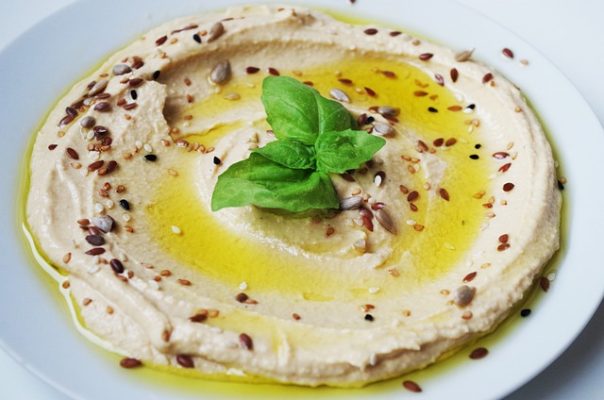EWG Tests of Hummus Found High Levels of Glyphosate Weedkiller
 Alarmingly, the carcinogen glyphosate weedkiller has been found to exist in 60% of beans and lentils samples tested by labs working for the Environmental Working Group (EWG). Hummus and the chickpeas that are used to make it may be contaminated by high degrees of this chemical that makes up the weedkiller. Dry lentils and garbanzo flour were also affected, according to the tests. Monsanto, now Bayer, has sold glyphosate as a weedkiller for decades under the brand name Roundup, and the International Agency for Research on Cancer or IARC as a likely human carcinogen. If you believe you were harmed by hummus (or any of the beans and lentils that were tested), give the seasoned Chicago-based product liability lawyers of Moll Law Group a call. Billions have been recovered in lawsuits with which we’ve been involved.
Alarmingly, the carcinogen glyphosate weedkiller has been found to exist in 60% of beans and lentils samples tested by labs working for the Environmental Working Group (EWG). Hummus and the chickpeas that are used to make it may be contaminated by high degrees of this chemical that makes up the weedkiller. Dry lentils and garbanzo flour were also affected, according to the tests. Monsanto, now Bayer, has sold glyphosate as a weedkiller for decades under the brand name Roundup, and the International Agency for Research on Cancer or IARC as a likely human carcinogen. If you believe you were harmed by hummus (or any of the beans and lentils that were tested), give the seasoned Chicago-based product liability lawyers of Moll Law Group a call. Billions have been recovered in lawsuits with which we’ve been involved.
Consult Moll Law Group About Your Hummus Claim
EWB commissioned several lab tests and found that 37 conventional, nonorganic chickpea-based samples tested, based a serving of four tablespoons of hummus, came out to be higher than the health-based benchmark that EWG uses for daily consumption. In fact, one sample came out to having almost 15 times as much glyphosate as the benchmark. One of two tests from a sample of conventional dry chickpeas exceeded even the Environmental Protection Agency’s lenient legal standard.
Ten hummus samples went over the benchmark: Sabra Classic Hummus; Sabra Roasted Pine Nut Hummus; two of the Whole Foods Market Original Hummus; Whole Foods Market organic label Original hummus; Cava traditional hummus; and two samples of Harris Teeter Fresh Foods Market Traditional Artisan Hummus.
However, twelve samples of organic hummus and six samples of organic chickpeas also included glyphosate at lower levels. Except for two samples, the levels were less than the benchmark requires. Note that it’s not acceptable to use glyphosate on organic crops. But any contamination of the organic crops may have been the result of chemicals drifting over the organic crop from a non-organic field that was sprayed.
Hummus is not the only food with astonishing levels of glyphosate – even PepsiCo’s Quaker Oats contains high levels. Individuals and families shouldn’t have to worry about probable carcinogens in a food item that’s specifically touted as healthy. Unfortunately, Roundup is the most common herbicide used in the United States, and sometimes glyphosate is sprayed on grains and beans as a drying agent.
When a product causes harm due to a defect in manufacturing, design, or marketing, it may be appropriate to file a product liability lawsuit. The theory of liability our attorneys must prove in the case depends upon the state or federal laws that apply. Among the theories of liability are strict liability, negligence, breach of warranty, and breach of contract. When our attorneys are able to establish liability, we may be able to recover compensatory damages, including economic and noneconomic losses such as medical expenses, lost wages, pain and suffering, replacement services, out-of-pocket costs, and emotional distress.
If you were harmed by hummus that you believe contained glyphosate weedkiller, please call the seasoned Chicago-based product liability attorneys of Moll Law Group to discuss your legal options. For a free consultation, please complete our online form or call us at 312.462.1700.
 Illinois Injury and Mass Tort Lawyer Blog
Illinois Injury and Mass Tort Lawyer Blog

